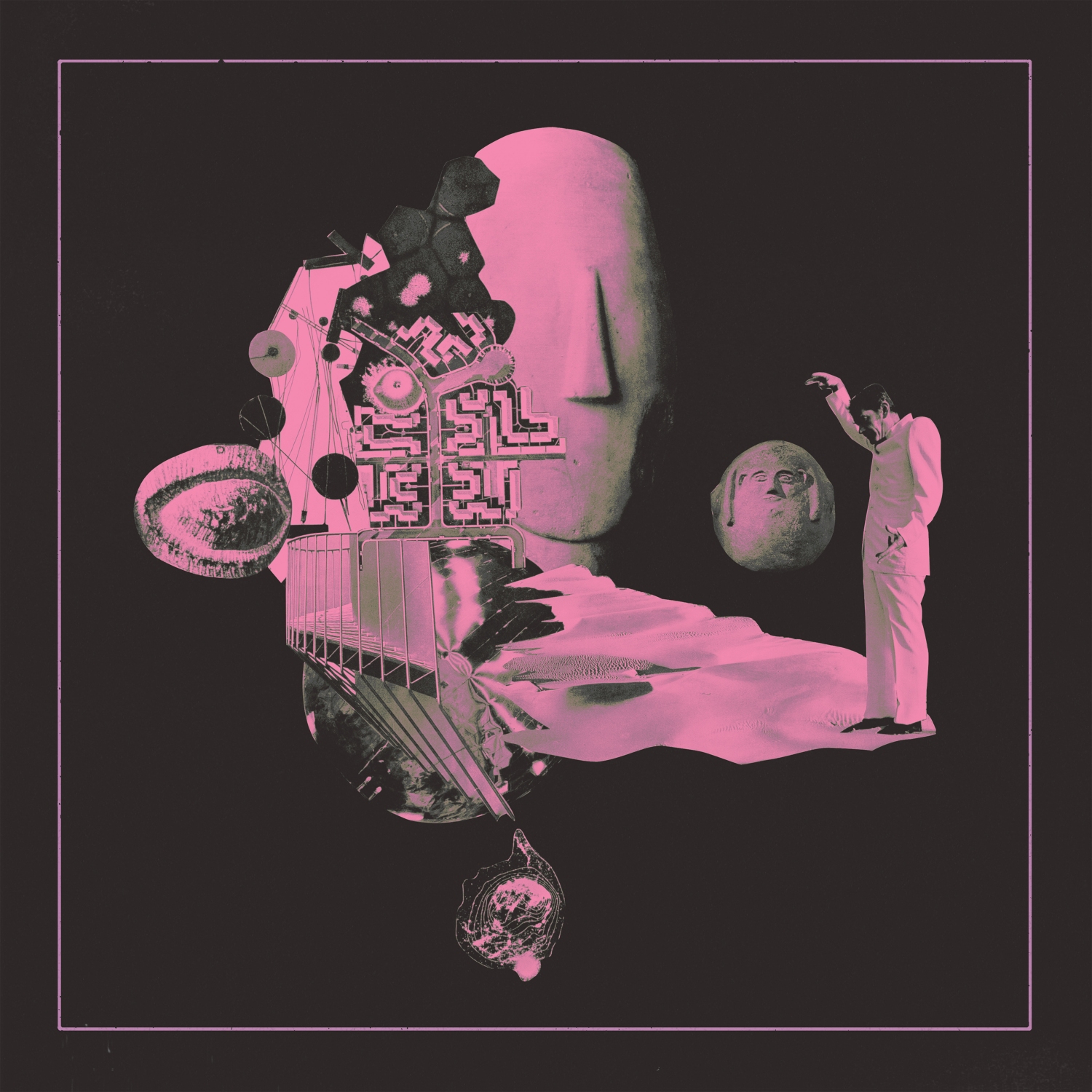The Breakdown
French three-piece Veik released their debut album Surrounding Structures on Friday via Fuzz Club Records. Centred around vintage analogue synths and abrasive instrumentation, the band’s experimental post-punk is rooted in the 70s avant-garde, most notably Krautrock and No Wave. They reel off groups like Implog, Suicide or Indoor Life as inspirations, whilst existing in a similar world to contemporaries like Beak>, Suuns and Girl Band. Due for release on London-based label Fuzz Club Records, Surrounding Structures arrives off the back of a handful of EPs and singles, tours around Europe and shows with the likes of The Soft Moon, Tomaga and Vanishing Twin.
Talking about Surrounding Structures, they say that “the writing of the album was heavily influenced by architectural environments. We made a lot of detours when touring in 2017 and 2018 to visit modernist and brutalist buildings in France, Germany and Belgium (which caused us many delays for soundchecks.)” Listening to the album, it’s clear how the disjointed shapes and abrasive textures of brutalist architecture are manifested in the music, however, they claim that the ‘Surrounding Structures’ of the album’s title are also a reference to both the “physical and social structures that surround us, and how they shape us as individuals and collectives.”
Veik explain that Surrounding Structures “is not a political album per se, but a way to address that question from different scales of observation, by telling stories and by integrating our own experiences and reflections into our sound.”
Opening with ‘Difficult Machinery’ we encounter a detached drone that leads to Faust esq vibe, by way of The Velvet Underground. It takes traditional krautrock tendencies and gives them new life, with added vocals to mix things up. Drummer and vocalist Boris Collet explain that the lyrics came to him after watching his dad ill in a hospital bed: “Seeing him weakened and plugged into banks of machines through cables that radiated from his body was a weird experience. This concept of ‘difficult machinery’ made sense to emphasise the mind-body dualism through the metaphor of the body as a machine.” ‘Singularism’ starts with discordant, noise which the band explain is “a critique of individualism, self-satisfaction and personal fulfilment. It’s also a reflection on the ‘creative self’ building on Oscar Wilde’s quote that ‘Art is the most intense mode of individualism that the world has known.’” Its haunting and difficult, challenging perceptions of music and creativity beautifully.
‘Political Apathy’ is a track that pays homage to the greats of its kind, with hints of Neu!, Can and more recent bands like The Vacant Lots shining through their distinctive take on things. The fact that it’s about serious topics that no-one wants to talk about, only adds to its appeal. Inspired by the socio-political unrest that has unfolded in France in recent years, Collet explains that “Political Apathy tells the story of a guy at home who observes a dissonance between his beliefs (or at least what he thinks his beliefs are) and their lack of concrete implementation and action. Implicit in the song are the Yellow Vest protests in France, which the character in question watches from his window. It’s not a protest song, it’s an introspective awakening song for indolent people.” ‘Honestly (I Don’t Want to Know) blurs the boundaries between electronic and rock, and they state “this is influenced by Suicide and Alan Vega but we wanted it to sound organic so we recorded some raging drums throbbing in the background.” It also offers more than a hint of The 39 Clocks sound, which anyone into Suicide and co will recognise instantly. ‘Life is a Time Consuming Experience’ has a hypnotic countenance which draws you deeper with its repetition and despite its soothing tone is another song tackling the underlying ills of the human condition and how it’s shaped by external pressures. “I like to think of this title as dadaist. The track is constructed as a timescale; a tale of a hopeless quest for pointless achievements in life,” Collet explains.
‘Château Guitar’ is their attempt to recreate “the codes, conventions and structures of techno music” using their live set-up of synths, drums and guitar: fusing a heavy four-to-the-floor pulse with screeching feedback and distorted guitars. ‘Same Old Argument’ features heavy distortion and cleverly utilised reverb to create a heady concoction where title track ‘Surrounding Structures’ is a tasty instrumental interlude exploring soundscapes akin to Tangerine Dream and La Düsseldorf before ‘Downside (I Wanna Know)’ sees a weighty synth bass-line paired with piercing guitar riffs that puncture the sound unashamedly. Concluding ‘Chullachaqui’ ends the album neatly, bringing together parts from all preceding tracks but making them a fresh.
This is the type of LP that explores sound so seamlessly, you just can’t stop listening. Veik wear their influences for all to see, yet that only adds to its appeal as something that spans so many greats from days gone by, a piece of nostalgia from 2021.














No Comment